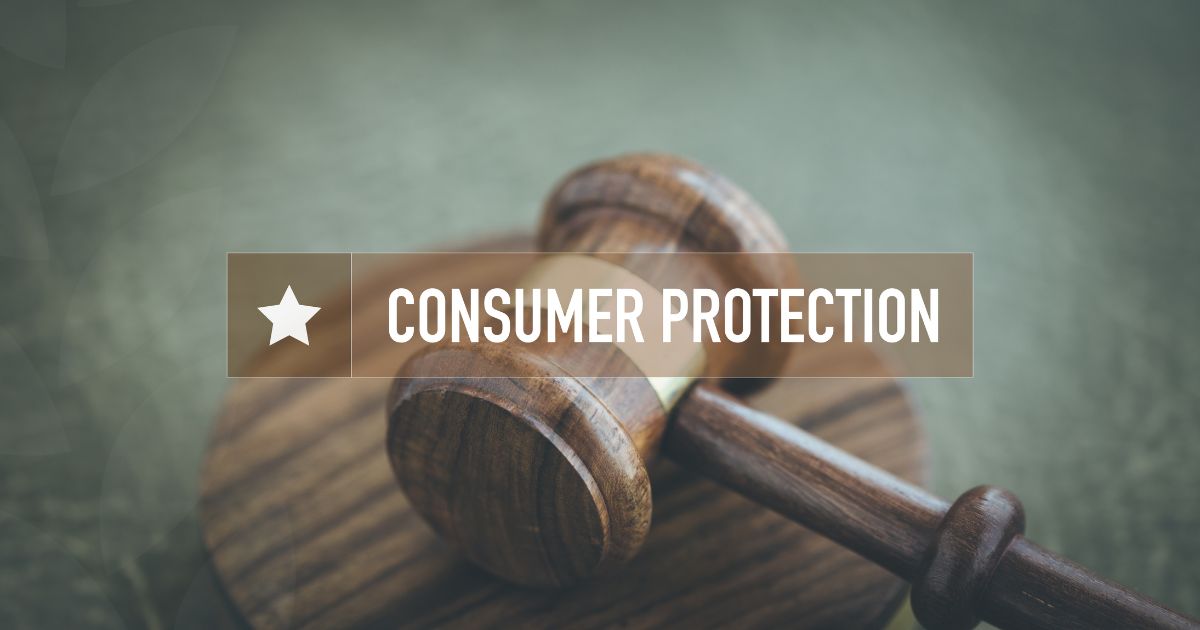
South Africa is a country with many laws and regulations designed to keep the business ecosystem fair for all. These policies help guide the way businesses conduct themselves towards customers and their competitors. One of those policies is the Consumer Goods and Services Industry Code of Conduct.
This code of conduct is there to ensure all businesses across all industries display fair business practices and raise the standards they have in terms of consumer practices.
In this article, we will look into the Consumer Goods and Services Industry Code of Conduct and how you can stay compliant with it.
What is the Consumer Goods and Services Industry Code of Conduct?
The Consumer Goods and Services Industry Code of Conduct (the Code) is a set of guidelines designed to establish fair business practices and raise the standards of conduct within the consumer goods and services sector.
The Code was developed by the National Consumer Commission (NCC), in line with the Consumer Protection Act (CPA) and provides a framework for resolving disputes between consumers and suppliers.
What is the Purpose of the Code?
The Code regulates the interaction between suppliers conducting business within the industry and the consumer and provides for an alternative dispute resolution mechanism should there be a dispute between them and the consumers.
The purpose of the Code is to:
- Set the minimum standards of conduct for the Industry when dealing with consumers.
- Raise the standards of conduct in the Consumer Goods and Services Industry without endangering the vitality and growth of business.
- Generate growth in the sector by increasing the level of certainty for all participants.
- Offer guidance to suppliers in the Consumer Goods and Services Industry as to the implementation of and the compliance with the Act and what constitutes fair business practices to be followed when operating within the Industry.
- Educate consumers as to their rights and redress available to them should a supplier breach the Code.
Supplier Compliance with the Code
The word ‘supplier’ means entities in the consumer goods industry that subscribe to the Consumer Goods and Services Ombud (CGSO), including retailers, suppliers, wholesalers, distributors, manufacturers, producers, importers, service providers and their agents.
The Code states that suppliers operating within the Code are required to pursue the objectives as set out in Section 3 of the Act, especially to:
- Reduce and improve any disadvantages experienced by consumers in accessing the supply of any goods or services.
- Promote fair business practices.
- Protect consumers from improper trade practices and fraudulent conduct.
- Provide a consistent, accessible and efficient system of consensual resolution of disputes arising from consumer transactions.
Benefits of the Code
Although the Code was developed to protect consumers from unfair business practices, it has the following benefits for businesses:
- Enhances customer trust and loyalty by demonstrating a commitment to ethical and fair business practices
- Helps businesses avoid legal issues and provides a cost-effective dispute resolution
- Can provide a competitive edge to business, displaying a commitment to the Code
- Enhances the business’s internal complaint-handling processes
- Provides a mechanism for resolving disputes, preventing lengthy legal proceedings
How to Stay Compliant with the Code
To stay compliant with the Code, you must do the following:
- Establish an effective internal complaints-handling process that is accessible and understandable to all consumers
- Display on all trading premises and platforms the CGSO decal
- Ensure a copy of the Code and the internal complaints-handling process is made available to any consumer upon request
- Ensure staff have adequate knowledge of the Act and the regulations issued under it
- Ensure that all key details of a complaint are received and captured
- Provide all relevant information to the CGSO or the NCC for the purpose of assisting in the resolution of the complaint(s)
- Work to resolve complaints and disputes in accordance with the law and the Code in alignment with your own internal complaints-handling procedures
- Ensure all staff refrain from influencing or harassing the CGSO or the consumer
Role of the CGSO in the Code
For small businesses, staying compliant with the Code means registering with the CGSO. By registering with the Ombud, you agree to contribute towards the funding of the CGSO. You can register with the CGSO online. The annual fees are determined by your business’s turnover and contribute towards the running of the CGSO.
The CGSO is controlled by a voluntary association, the Board of the Consumer Goods and Services Ombud Association. The Ombud acts independently when resolving complaints and can only be dismissed on the grounds of incompetence, gross misconduct or inability to carry out its duties.
Functions of the CGSO
Included in the functions of the CGSO is the obligation to enforce the Code by:
- Deal with all complaints relating to the Code or the Act by a consumer
- When receiving a complaint, one must investigate and evaluate alleged contraventions of complaints arising from the Code
- Determine if a complaint falls within its jurisdiction
- Explore any reasonable prospect of resolving complaints by a settlement acceptable to both parties
- Request a supplier to provide any information to the CGSO which relates to the complaint and its solution
- Report any non-compliance, or influence by a supplier to a consumer or the Ombud
The Code is still a mechanism for consumers to ensure that businesses are exhibiting fair business practices. For business, complying with the code will help build customer loyalty and ensure you avoid costly legal issues and disputes.






